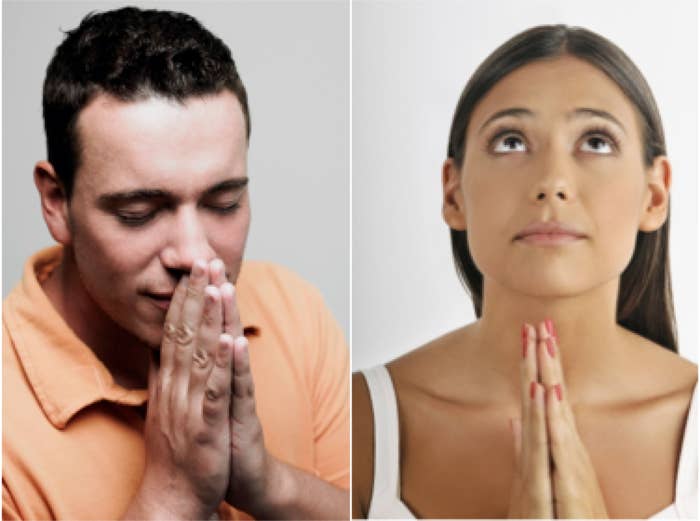
We Are ‘Not a Nation of Atheists and Materialists’
Did you know...
- Less than a quarter of the people sitting next to you on the Tube or bus believe that science can explain everything
- And even some of your neighbours who describe themselves as non-religious say they have experienced what they would call a miracle
A British spirituality survey of over 2,000 people looked into "The Spirit of Things Unseen". Commissioned by independent production company CTVC and carried out by think tank Theos, the results were unveiled at a panel discussion chaired by the BBC's Jane Winner. The statistics were at the heart of the launch of a series of 'thought-provoking podcasts' called things unseen - for those who feel 'there's more to life than meets the eye'.
The results? Despite the fact that 'formalised religious belief and institutional religious belonging has declined over recent decades', the research nevertheless found 'the British have not become a nation of atheists or materialists'.
'On the contrary,' it concluded, 'a spiritual current runs as, if not more, powerfully through the nation as it once did'.
Here are some of the facts to emerge in the survey:
1. Science doesn't have all the answers. Over three quarters of adults (77%), including three fifths of those who are non-religious, believe 'there are things in life that we simply cannot explain through science or other means'.
2. A spiritual being, or spiritual beings, exist. A majority of people (59%) - including 34% of the non-religious - are believers in some kind of spiritual being.
3. Humans have a spiritual element. Are humans 'purely material beings'? Just 13% of adults believed this to be the case. The number was so low because three quarters of the non-religious are actually convinced we include some spiritual element.
4. Spiritual forces have consequences. Some 62% of those calling themselves Christian think spiritual forces have an effect on people's thoughts, on human events, or on events in the natural world. And over a third of the non-religious agree with them.
5. Miracles occur. Almost three fifths of the people accept that things happen which have no scientific explanation. Seventeen percent of those interviewed give God or a higher power credit for miracles, while 30% disagree with that. An additional 42% fall between these two points of view, saying 'miracles are unusual events that we cannot yet explain through science'. Contrary to the expectations of some on the panel, it was younger respondents (20% of those aged 18-44) who more consistently believed in miracles, compared to only 12% of those who are older.
6. Miracles have been experienced. They were not an abstract concept to a sixth of the interviewees, but something they or someone they knew had experienced. Indeed, 8% of the non-religious adults interviewed had also experienced a miracle, or at least knew someone who had.
7. Half of us pray. This includes nearly a fifth of the non-religious (19%).
8. Prayer brings us peace. Over half of the population (51%) accept 'prayer works', at least to the extent of bringing a sense of peace to the one praying.
9. Prayer can heal. Almost two fifths of those interviewed (38%) felt that prayer could also heal. This included just over half of the 'religious' and just under one eighth of the 'non-religious'.
So, Britain's typically eclectic spiritual life lives on.
At the launch event I encountered a Muslim artist, an Anglican who has become a Buddhist but still loves churches, an academic scholar of Buddhism working towards Anglican ordination and a neuropsychologist who studies end-of-life experiences.
And in me they encountered a Christian Scientist who believes in the power of prayer to bring not only peace but healing to mind and body... yet does not believe in miracles. During three medicine-free decades I have seen evidence that physical and mental restoration can come about through spiritual means - that is, through the 'action of the divine Mind on human minds and bodies' (Science and Health with Key to the Scriptures, Mary Baker Eddy).
That puts me among the majority comfortable with the idea that 'there is more to life than meets the eye' and convinced that this 'something more' is spiritual - even if we don't all agree what that 'something' is.
As Irish comedian Dave Allen used to so inclusively say at the end of his shows: "Thank you, goodnight and may your God go with you."
Tony Lobl is a Christian Science practitioner
Things Unseen - podcast archive
thingsunseen.co.uk
Things Unseen explores what’s beyond the material, visible world. And it does so through an unseen medium – audio podcasts.

